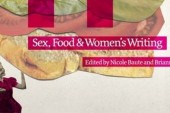
An interesting topic to come out of this week’s Women In Toronto Politics event (read Emily Loewen’s full piece here) regarded the tightrope-balancing act between revealing our true selves on Twitter and maintaining a respectable level of professionalism. How do we define ourselves as a brand online and how do we do it in a powerful way? A friend of mine who is heavily opinioned and informed on the political landscape only recently revealed her name on Twitter, previously fearing her political views would negatively affect her professional work in the education sector. Eventually, she accepted the risks and began representing herself as a whole person who feels, has opinions and is passionate. She chose to show her real name. But there’s more to it than that. When it comes to politics in Toronto, many women are afraid to even admit their gender on Twitter.
“One of the risks is you become a target fairly easily for vicious, anonymous online attackers who are going to go after you not necessarily for the substance of your opinions, but for your identity,” said Hamutal Dotan, Editor-In-Chief of Torontoist. “That is something historically and still today that disproportionately targets women. There are women who have started commenting on Toronto politics on Twitter and have anonymous handles, they haven’t gender identified because of this.”
Dotan calls this notion “coming out on Twitter” and says it’s more common than you’d think. Women’s role in social media is a conflicting issue. On one hand, women make up the majority of social media users and most of their online activity is used for communication. On another, there’s an increased fear of putting a face to your opinions, your own face, and what that means. “It seems like many of them, if not most of them, acutely remember how quickly their culture will objectify them or degrade them based solely on their appearance,” said Drew Bowling in an article for WebProNews.
Do you mean appearance as in admitting you’re a female? Shelley Carroll, City Councillor of Ward 33 (Don Valley East), said in the panel discussion that sometimes anonymous Twitter users will “gender identify” themselves to her. “I am surprisingly disappointed by it at times. I think Twitter is where we should be having this conversation about the role of women because you can quickly in 140 characters call somebody on something. I’m always surprised by how short lived calling some of our colleagues on sexist or homogenous remarks can be. It happens quickly and in short bursts then its over.”
As a female journalist who specializes mostly in male dominated fields, I am no stranger to having my ideas disregarded. In earlier days it left me partially broken, but eventually I got to a point where I no longer let myself be defined by other people’s ignorance. My possession of a vagina is no excuse for people to discredit my opinions. If you feel like you’re reading a lot about this lately it’s because you are. There is a movement on the resurgence of female power, something addressed extensively in the panel, and it’s fresh and exhilarating. There’s an increase in large-scale female activism both online and off. Slowly more women are getting involved in municipal politics and more women are taking their voices to Twitter and blogs even when the game gets vicious.
“There will be trolls, there will be bullies, and they’ll be out there for you,” said Kristyn Wong-Tam, City Councillor of Ward 27 (Toronto Centre-Rosedale). “But as a longtime activist and human rights activist, they’ve always been out there in one way or another. I have received menacing phone calls and received nasty parcels based on my opinions I’ve taken on issues.”
Wong-Tam said previously she could file police reports for the threats, but Twitter takes things to a different level. “This morning I was called a cunt by someone on Twitter because of my position on the long gun registry. That was out there and everybody saw it. That is the power of Twitter. You also get to expose the nasty bits of people. The threats, although public, are public to everyone and you get to track it down,” she said.
Throughout the panel I began to really evaluate the females I follow on Twitter. Yes, I follow councillors and politicians whose opinions I value, but I also follow with consistency women from a variety of industries and backgrounds. I realized they share some commonalities. 1) They’re great at their craft. I appreciate and respect the actual work they do and I trust their ideas. 2) They have something to say — whether it’s related to their craft or not. They come across as strong people and they defend themselves. 3) They’re honest. They’re not afraid to slip pieces of themselves into their discourse, which makes me feel like I know them. Again, this creates trust.
That third point is the most crucial in power. I think what truly generates trust is knowing that what someone is telling you is the truth, especially when so few female reporters are commenting on political issues. Councillor Carroll said she uses Twitter to build trust. “I’ll always tell you what I’m doing in the name of representing you and building you a better city. You can decide whether or not that’s a good thing because I’m not going to hide it from you. I have nothing to hide. You have to brand yourself that way from the very beginning,” she said. She’s built her reputation on being honest and because of this, people trust her opinions to be well researched and truthful.
Her Twitter is also personal because she has fun. She may not be tweeting about the deliciousness of her fourth glass of cabernet sauvignon, something I am guilty of at times, but she does tell jokes and takes a lighthearted, yet firm approach to criticism.
“Twitter really is about developing relations, not using it as a marketing tool. If you’re interested in starting a narrative and showing me a story that gives me a sense of your personality and what you’re interested in, that’s a way of building trust,” said panelist Jse-Che Lam, an English and civics teacher with the Toronto District School Board. “For people who are new to social media, that’s one of the apprehensions about having an unlocked account and having people see who you are. I cant say that who I am on Twitter is any different than who I am in person, it’s just a different side of me. If you’re not sure, just wait. You can learn a lot from watching those tweets and conversations.”
The bottom line here is to be honest on Twitter and don’t be afraid to be a woman. The trick is to stop thinking about things in terms of gender and start thinking about them as issues, even when your gender becomes the issue. Dotan says she only becomes consciously aware of her gender when she’s having a hard time getting questions in or people aren’t giving her the right reactions, but she doesn’t care. “I’m just going to keep showing up and continue to write about transit until you get over whatever it is you need to get over to worry about where I’m coming from and that’s it,” she said.
What this panel really spoke to was the power of being yourself, taking a stance and defending your opinions in an honest and trustworthy way. It’s about expanding women’s role in political discourse 140 characters at a time.
____
Sheena Lyonnais writes about tech for Toronto Standard. You can follow her on Twitter at @SheenaLyonnais.
For more, follow us on Twitter @TorontoStandard or subscribe to our newsletter.














